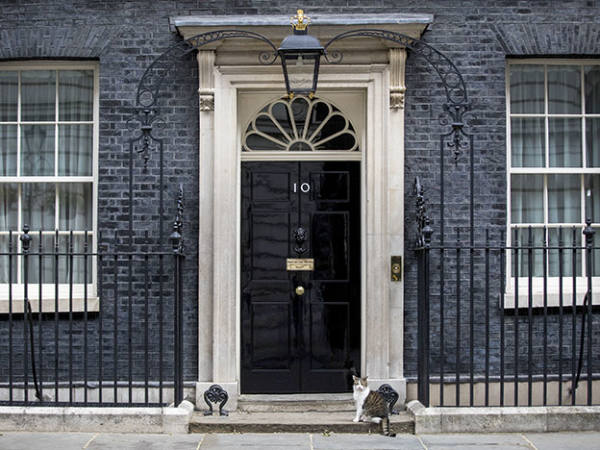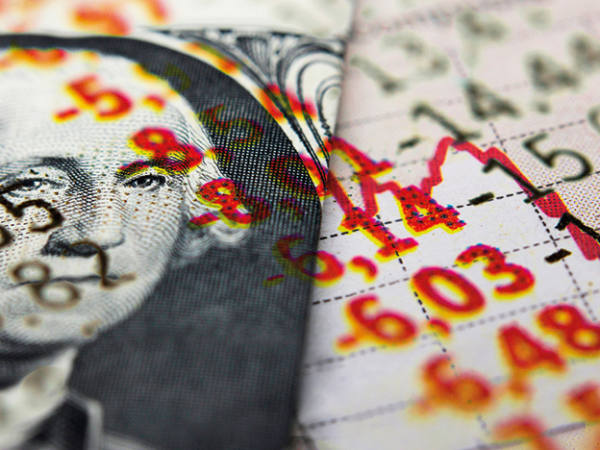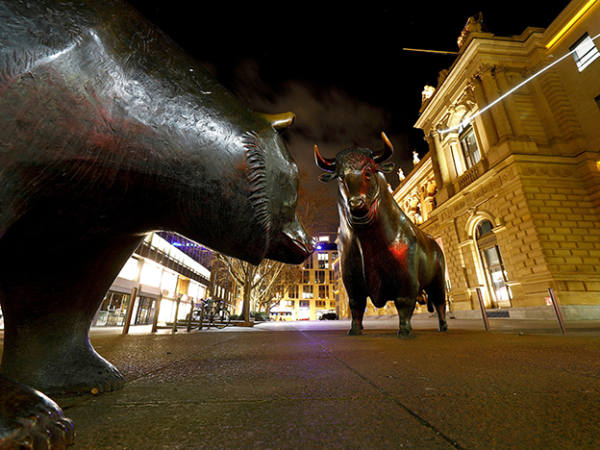- Warren Buffett's letter to shareholders adds fuel to the debate on bonds
- Bitcoin too volatile to be rates hedge
- Reflation trade still on despite jitters
Warren Buffett doesn’t believe in Bitcoin and, as he made clear in his annual letter to Berkshire Hathaway (US:BRK.A) shareholders, he is no fan of bonds either. The world’s most famous investor wrote that fixed income investors face a bleak future as Berkshire pared back slightly on its corporate credit holdings.
Government bond yields have risen on the back of investors’ inflation fears, which has upset the delicate balance of capital markets. Low central bank interest rates and vast quantitative easing (QE) programmes throughout the pandemic drove the price of government bonds to record highs. In many cases yields (which move inversely with prices) are negative after inflation.
Good news on vaccine roll-outs has caused expectations of an explosion in pent-up demand when economies reopen. Alongside huge government spending, and price rises for some commodities where supply has been constricted due to last year’s turmoil, this will lead to inflation. The narrative has been that central banks will be more tolerant of inflation than in the past (so they won’t raise interest rates too fast in response), but that is effectively asking bond investors to accept more deeply negative real returns even as the economy is strengthening.
Last week’s selling of government bonds was a signal from investors to central banks and governments that they won’t necessarily play ball. They require more yield to have their capital tied up if its value is being eroded faster. The market is fighting to set the level of interest on developed market government debt (which is almost free of default risk) higher, which means bonds from corporate issuers must also fall in price to offer investors a spread over the risk-free rate.
Another knock-on effect is that if the market cost of capital is set higher, investors will demand more of a risk premium for holding shares. Suddenly, the future cash flows of big tech companies, reliable as they seem, must be discounted at a higher rate. Unless profit forecasts are upgraded, the price of the shares must then fall for the long-term implied earnings yield (which is never certain) to give adequate excess return over government bonds.
Bitcoin not a comfortable hedge
Going by his previous utterances on crypto, Buffett probably won’t be using assets like Bitcoin as a hedge to any further volatility in treasury yields. Back in 2019, crypto bulls were talking up the digital currency’s positive correlation with US 10-year government bond yields, which means that its rise in value could offset falling bond prices.
Broadly speaking, that relationship has been in evidence since the start of 2021 with the 10-year yield and the price of Bitcoin both rising. Yet that belies the violent price swings in the crypto currency, which makes it inappropriate as any more than a slither of diversified portfolio allocations.
Whatever the longer trends, in the week to 26 February, the price of Bitcoin fell 16 per cent, a seven day spell when the benchmark treasury yield rose and ended 12 basis points higher. That significant Bitcoin loss exactly as bonds sold off shows weakness in its usefulness as a hedge. Such short-term fluctuations will make investors think very carefully before trying to be clever about using crypto assets in defensive strategies.
Being circumspect and getting real about rates
The return of Bond Vigilantes in global fixed income markets could be seen as the end of an era when all asset prices have been dominated by central bank policies. Other commentators are less quick to judge whether last week’s volatility was such an inflection point. In his note “Getting Real on Rates”, Morgan Stanley strategist Vishwanath Tirupattur outlines an argument that yields could be rising for good reasons.
His report says that when inflation expectations and real yields are rising, risk assets like shares and high-yield corporate bonds do well. Furthermore, when higher rates precipitated a fall in stock markets it was in the context of feared central bank tightening or late stage economic cycles. “In contrast”, says Tirupattur, “we are clearly in the early part of the economic cycle.” He then adds that Morgan Stanley analysts aren’t expecting the US Federal Reserve to start tightening rates for around two-and-a-half years.
Continued dovish noises from Fed Chair Jerome Powell are reassuring but that doesn’t mean bond investors won’t dissent. That said, it must be acknowledged that many major investors like pension funds and endowments are mandated to hold government debt. Matching future liabilities in a higher inflation world, but with nominal rates suppressed, will cause them the headaches that Buffett is predicting.
For an investor like the Sage of Omaha, the risk-to-reward on offer from bonds isn’t attractive - but that doesn’t mean he’s predicting financial Armageddon. 10-year treasury yields had pulled back to 1.42 per cent by Monday and there are reasons to remain positive for the reflation trade in equities.
Further tugs of war between bond investors and the Fed may hurt expensive sectors like tech and be bad for index investors, but that’s no reason to bet the farm on alternative assets like crypto. For stock-pickers, rising dispersion between sectors may even help unearth the type of opportunities that Buffett himself is famous for seizing.











